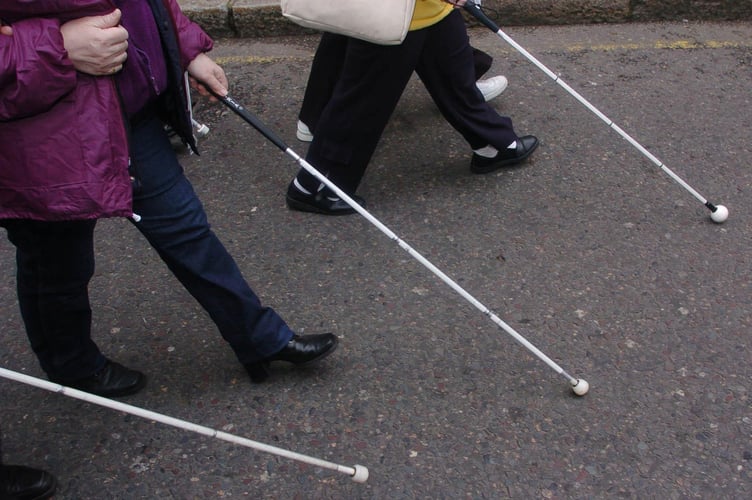Nearly nine in 10 new visual impairment diagnoses in Cornwall last year were due to preventable causes, new figures show.
The Royal National Institute for Blind People said investment in eye health and earlier diagnosis and treatment are essential for preventing unnecessary sight loss.
Office for Health and Disparity analysis based on Moorfields Eye Hospital data shows 344 Certificates of Visual Impairment were given to people in Cornwall in 2022-23.
Of these, 224 were due to age-related macular degeneration – a disease that blurs central vision. A further 54 were due to glaucoma and 24 due to diabetic eye disease.
These are all considered preventable causes of sight loss.
It meant, 88% of new cases in the area were preventable.
The completion of a CVI by a consultant ophthalmologist, starts the process of registration with a local authority and leads to access to services. The certificate is voluntary, so true rates may be higher.
Across England, 69% of new CVIs linked loss of sight to age-related macular degeneration, glaucoma and diabetic eye disease.
The RNIB said the number of people who have sight loss that significantly impacts their daily life is set to increase by a third between now and 2030, much of which is caused by preventable eye conditions.
Louise Gow, RNIB’s clinical lead for eye health, optometry and low vision services, added early diagnosis and treatments are "essential" for preventing unnecessary sight loss.
"It is important to ensure everyone has access to regular routine eye checks, and for barriers to be removed to those who may face added challenges in getting their sight checked," she said.
She added: "To help slow the increase rate, we also need to invest now in a national eye care strategy for England which would put more emphasis on eye health and reduce NHS delays and streamline processes so people get quicker assessment and treatment.
A Department of Health and Social Care spokesperson said: "No one should have to suffer avoidable sight loss. This is why we are taking action to tackle some of the main causes of sight loss including smoking and obesity."
They said over £500 million is invested annually on providing free NHS sight tests, that can detect sight threatening conditions early.
"The numbers of adults between 16-64 becoming visually impaired from diabetic retinopathy has fallen by almost a fifth since 2010, because of the diabetic screening programme and a range of new treatments has improved the prognosis of those diagnosed with age-related macular degeneration," they added.
For those who are already on a sight loss journey, the RNIB Helpline on 0303 123 9999 can provide help, advice, and support.


.jpg?width=209&height=140&crop=209:145,smart&quality=75)

